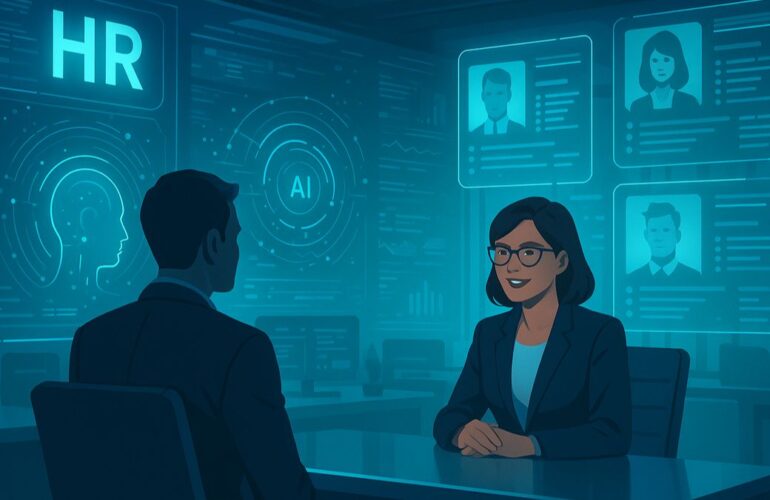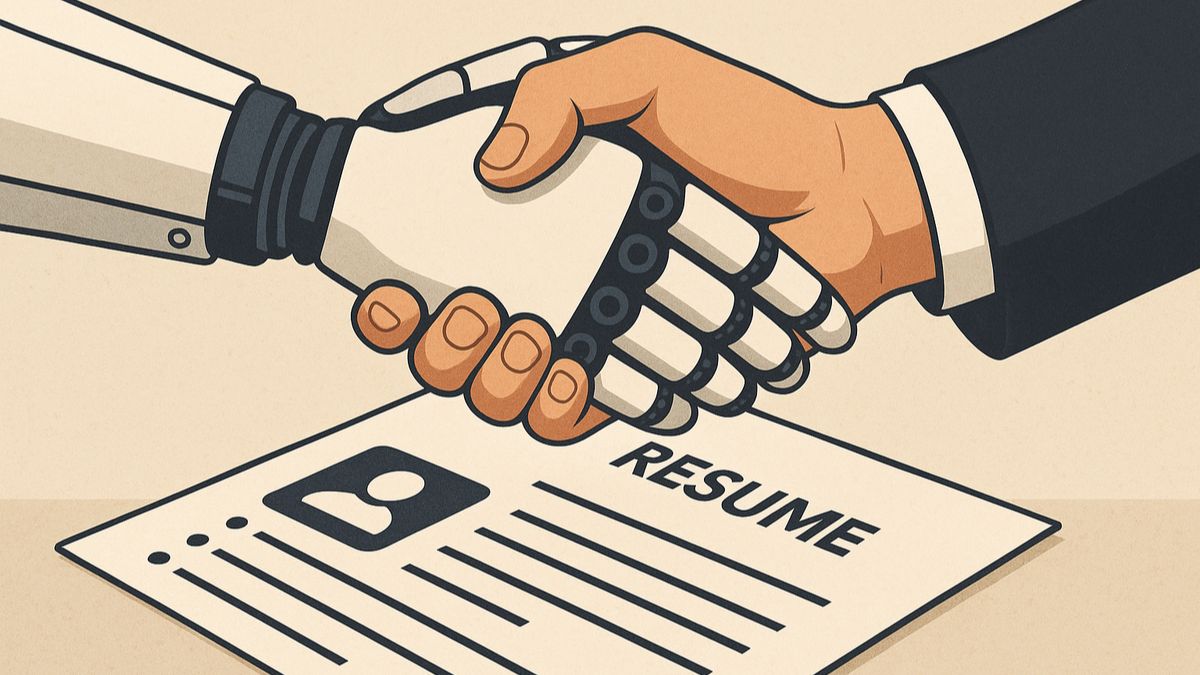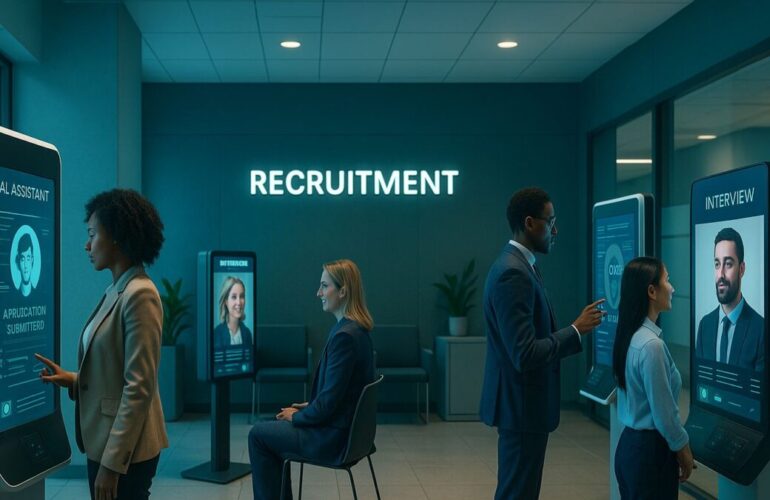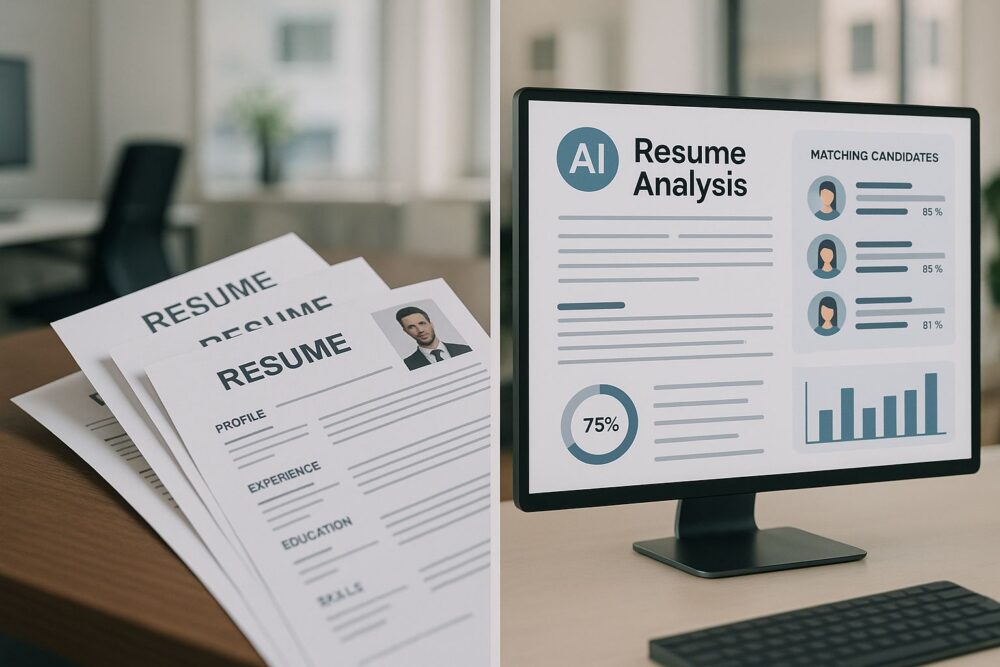AI Recruitment Takeover Why Human Skills Still Matter
AI Recruitment Takeover: Recruitment is entering a new era. Artificial Intelligence (AI) is powering smarter systems, faster candidate shortlisting, and data-driven hiring. Across industries and regions, the AI Recruitment Takeover is transforming how employers attract and select talent.
From automated resume screening to AI chatbots conducting preliminary interviews, technology is making the hiring process more efficient. But while machines can process data at lightning speed, human recruiters remain central to building strong teams. Skills like empathy, cultural judgement, and ethical decision-making still matter most and will continue to shape the future of recruitment.
Understanding the AI Recruitment Takeover
The term “AI Recruitment Takeover” reflects the growing influence of AI tools in HR. Leading examples include:
-
AI Resume Screening: Automated parsing tools quickly filter candidates based on job descriptions.
-
Chatbots and Virtual Assistants: AI-driven bots answer queries, conduct assessments, and provide real-time updates.
-
Predictive Analytics: Algorithms forecast candidate performance and retention.
-
Bias Reduction Tools: Designed to minimise unconscious bias in shortlisting.
These innovations allow companies to handle higher application volumes, reduce time-to-hire, and cut recruitment costs. Yet, efficiency alone does not guarantee the right hire.
Why Human Skills Still Matter Most
 1. Empathy and Emotional Intelligence
1. Empathy and Emotional Intelligence
AI may interpret language and tone, but it cannot feel. Recruiters can sense enthusiasm, stress, or sincerity insights that go beyond raw data. Quick look.
2. Cultural Alignment
Organisational culture is complex. Determining whether a candidate’s values match the company’s environment requires nuanced human judgement.
3. Ethical Oversight
Hiring has long-term impacts on people’s careers and livelihoods. Humans ensure fairness, inclusivity, and accountability in areas where algorithms can fall short.
4. Creative and Adaptive Thinking
AI follows data patterns. Recruiters think outside the box, identifying unconventional talent and adapting strategies to evolving business needs.
5. Building Trust
A positive candidate experience is based on human connection. From personalised feedback to transparent communication, recruiters create bonds that technology cannot replicate. AI in recruitment.
The Risks of Overreliance on AI
AI Recruitment Takeover: While AI delivers speed and scalability, it also carries risks:
-
Algorithmic Bias: AI can unintentionally exclude candidates if trained on biased datasets.
-
Candidate Alienation: Over-automation may leave applicants feeling like just a number.
-
Privacy Concerns: Handling personal data through AI tools raises compliance and security issues.
-
Loss of Human Intuition: Machines may overlook unique talents not captured by structured inputs.
These risks highlight why the AI Recruitment Takeover should focus on collaboration, not replacement.
The Balanced Future: Human + AI
AI Recruitment Takeover: The future of recruitment lies in combining the best of both worlds. AI handles repetitive tasks, freeing recruiters to focus on what humans do best: relationship-building and strategic thinking. Powered by AI.
Practical Ways to Blend AI and Human Strengths:
-
AI for Efficiency: Resume screening, scheduling, and assessments.
-
Humans for Insight: Interviews, cultural evaluations, and final decisions.
-
Transparency: Inform candidates about how AI is used in the process.
-
Ethical Standards: Regularly monitor AI tools for fairness and inclusivity.
-
Soft Skills First: Emphasise adaptability, teamwork, and leadership potential.
Why It Matters for Employers
AI Recruitment Takeover: Employers who rely solely on technology risk losing the human essence of recruitment. Candidates want authentic interactions, personalised guidance, and reassurance during their job search. That AI
By leveraging AI for efficiency and humans for empathy, companies not only hire faster but also build trust and loyalty with employees. This hybrid approach strengthens employer branding and fosters long-term organisational success.
Conclusion
The AI Recruitment Takeover is transforming how talent is sourced, assessed, and hired. But even as technology evolves, the recruiter’s role remains essential. Human skills empathy, judgement, creativity, and ethics are the foundation of sustainable recruitment strategies. Recruitment process.
The winning formula is collaboration: AI enhances efficiency, while human recruiters ensure quality, fairness, and cultural alignment. In recruitment, technology may be powerful, but people will always matter most.


 1. Empathy and Emotional Intelligence
1. Empathy and Emotional Intelligence
